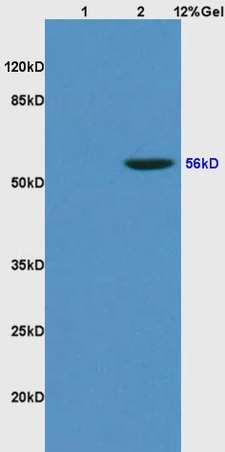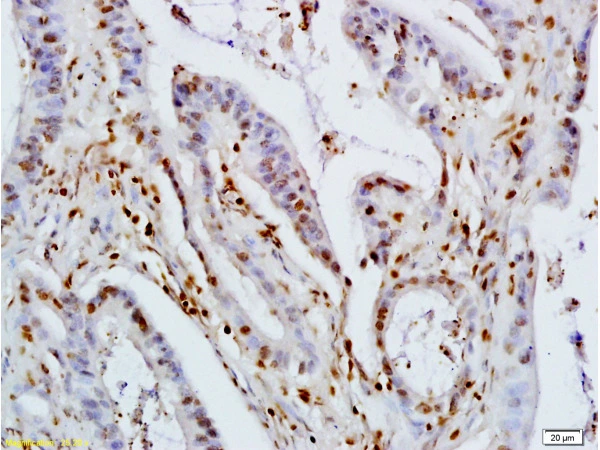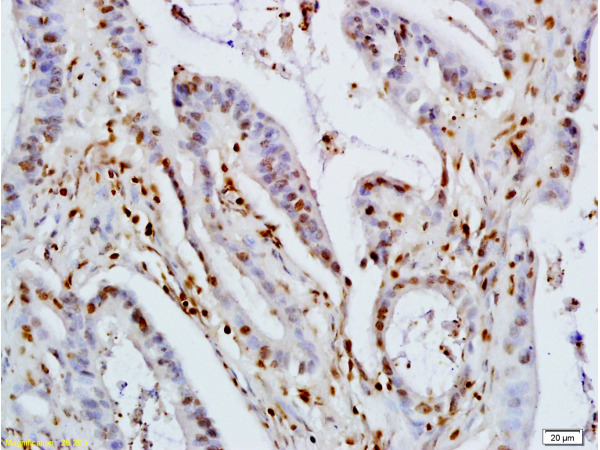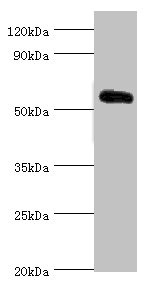
WB analysis of various samples using GTX52307 KLF4 antibody. Dilution : 1:200 Lane 1 : rat kidney lysates Lane 2 : human colon carcinoma lysates
KLF4 antibody
GTX52307
ApplicationsImmunoFluorescence, Western Blot, ImmunoCytoChemistry, ImmunoHistoChemistry, ImmunoHistoChemistry Paraffin
Product group Antibodies
ReactivityHuman, Mouse, Rat
TargetKLF4
Overview
- SupplierGeneTex
- Product NameKLF4 antibody
- Delivery Days Customer9
- Application Supplier NoteWB: 1:300-1000. IHC-P: 1:50-400. *Optimal dilutions/concentrations should be determined by the researcher.Not tested in other applications.
- ApplicationsImmunoFluorescence, Western Blot, ImmunoCytoChemistry, ImmunoHistoChemistry, ImmunoHistoChemistry Paraffin
- CertificationResearch Use Only
- ClonalityPolyclonal
- Concentration1 mg/ml
- ConjugateUnconjugated
- Gene ID9314
- Target nameKLF4
- Target descriptionKLF transcription factor 4
- Target synonymsEZF, GKLF, Krueppel-like factor 4, Kruppel like factor 4, Kruppel-like factor 4 (gut), endothelial Kruppel-like zinc finger protein, epithelial zinc finger protein EZF, gut Kruppel-like factor, gut-enriched krueppel-like factor
- HostRabbit
- IsotypeIgG
- Protein IDO43474
- Protein NameKrueppel-like factor 4
- Scientific DescriptionThis gene encodes a protein that belongs to the Kruppel family of transcription factors. The encoded zinc finger protein is required for normal development of the barrier function of skin. The encoded protein is thought to control the G1-to-S transition of the cell cycle following DNA damage by mediating the tumor suppressor gene p53. Mice lacking this gene have a normal appearance but lose weight rapidly, and die shortly after birth due to fluid evaporation resulting from compromised epidermal barrier function. Alternative splicing results in multiple transcript variants encoding different isoforms. [provided by RefSeq, Sep 2015]
- ReactivityHuman, Mouse, Rat
- Storage Instruction-20°C or -80°C,2°C to 8°C
- UNSPSC12352203








